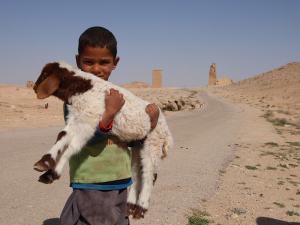While yet another chemical weapons attack on civilians in Syria has spurred both demand for and worry about international military strikes on the Assad regime, many in the Buddhist community are torn between the desire to actively protect innocents there and a conviction that military interventions more often than not fail in both their immediate and long-term missions.
On the one hand, people are dying: often women and children caught in the fighting. Compassionate ideals might lead us to want to lean out and help: but how? Support refugees? Support those in the country helping people like the White Helmets? Support greater international diplomacy? Support direct military intervention (which itself could come in many degrees)?

One might ask these questions with the genocide in Rwanda of 1994 in mind, in which there was a relatively clear rise in tensions and signs ahead of time, as well as opportunity for international intervention. And yet the international community was silent. Likewise, these folks might point to the Bosnian War of 1992-1995, where U.S. and NATO interventions helped end a genocide.
On the other hand, one can list countless military expeditions that have failed to meet at least some goals including U.S. interventions in Afghanistan, Iraq, Somalia, and Libya; perhaps also Viet Nam and Korea.
What do you think? Here are some options to choose from – feel free to vote “Other” by commenting in the comments section below, whether you vote or not. And below you’ll find a website dedicated to cutting global military spending and funding humanitarian efforts, which might be a possible “Buddhist” solution.
http://demilitarize.org/gdams-2018/












